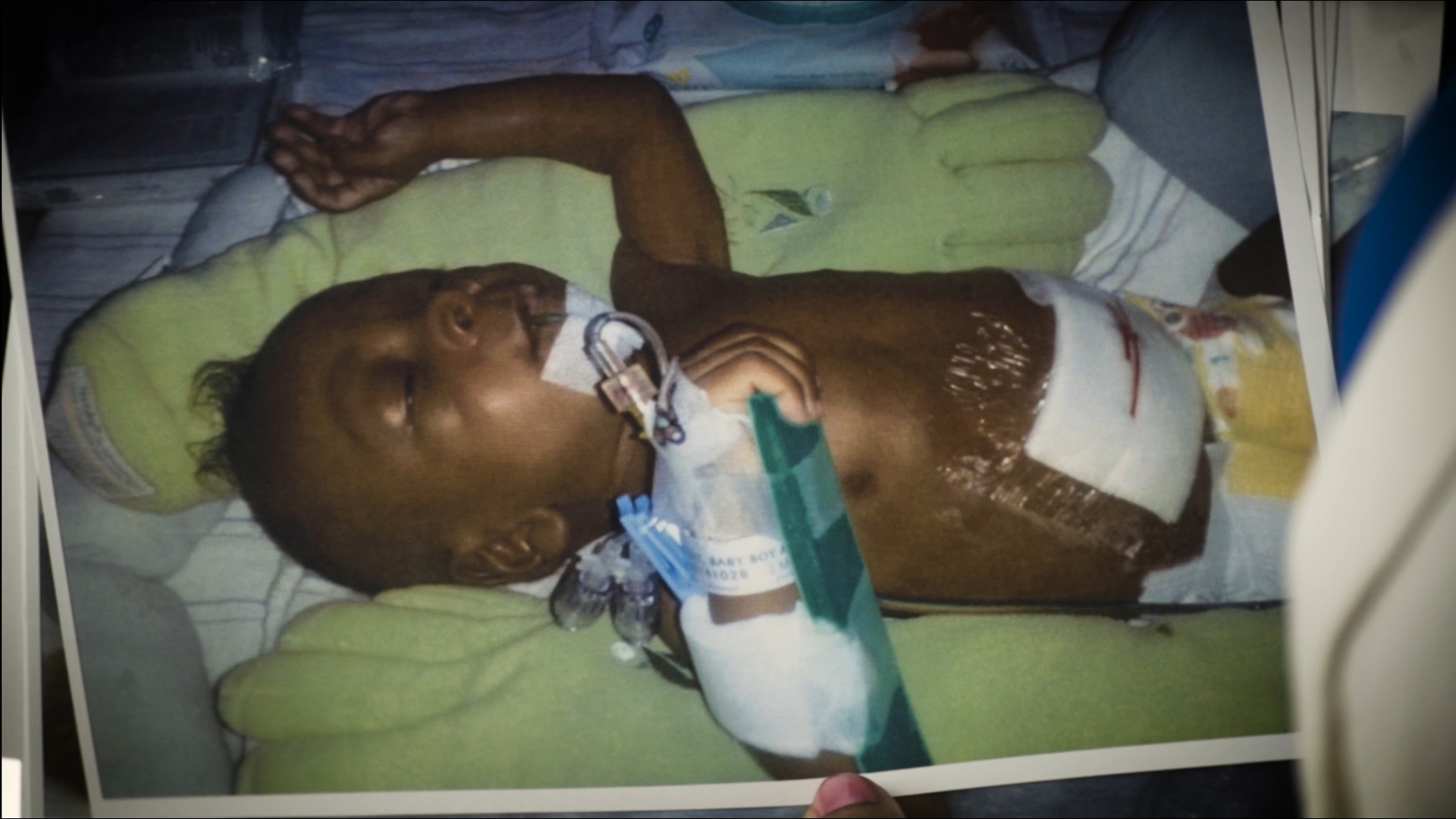'What could I have done differently?' | How racial disparities, lack of access to human milk influence deadly intestinal disease in infants
Premature babies who are exclusively breastfed are 138% less likely to develop NEC. But there isn't a single donor breast milk bank in the state of Georgia.
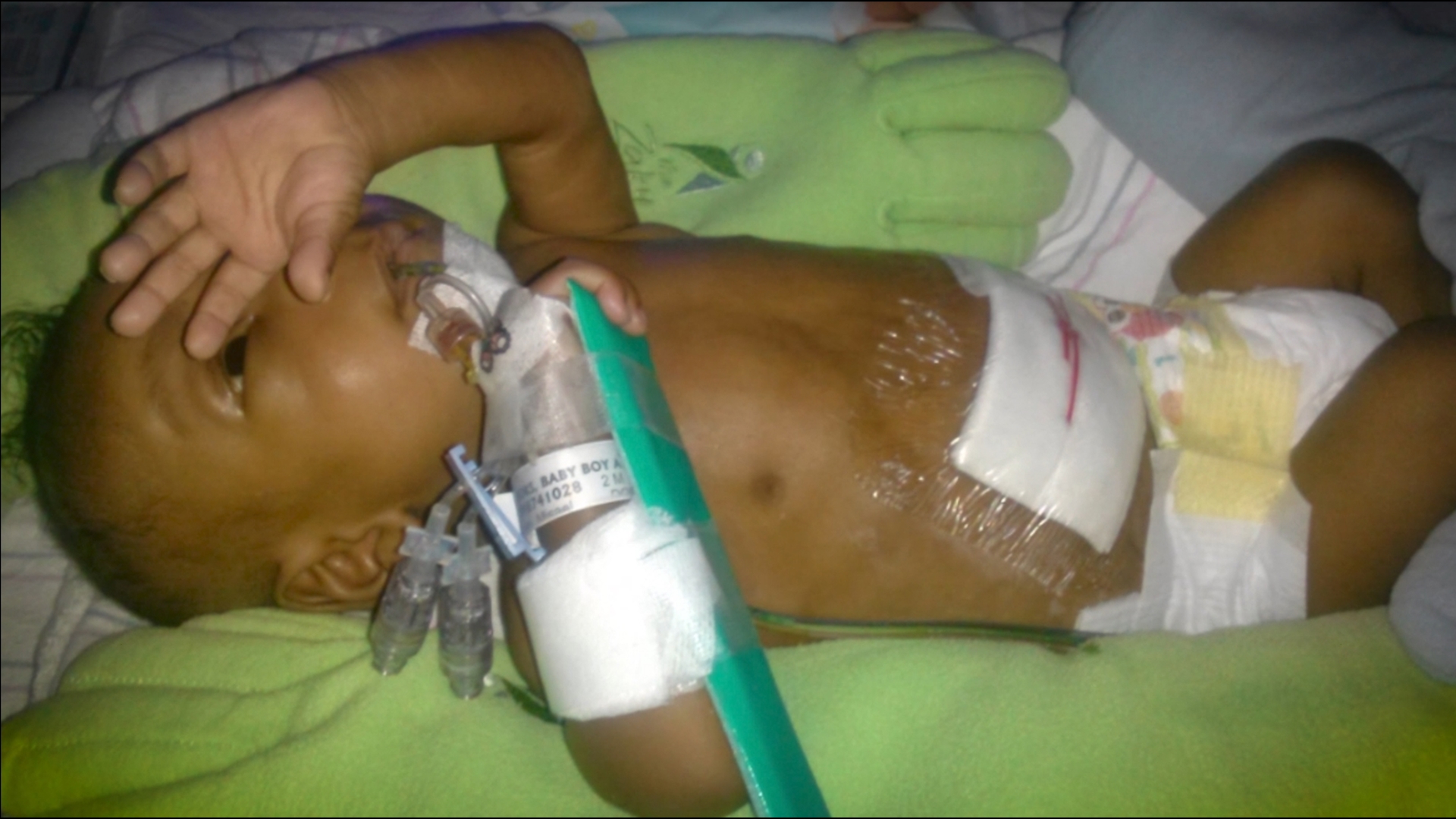
A study spearheaded by researchers from Atlanta reveals that Black babies are 2.5 times more likely to die of necrotizing enterocolitis than white infants.
The disease -- also known as NEC -- attacks the intestines of premature infants.
Dr. Mattie Wolf, a neonatologist with Emory School of Medicine and Children's Healthcare of Atlanta, is one of six researchers, four of whom are from Atlanta, who published the study.
"We know that race is a social construct and not a biological construct," Dr. Wolf said. "So we really need to better understand what about the social construct of race, exposure to structural racism, and things along those lines ultimately change the health outcomes of our babies."
While there is still no definitive answer about what causes NEC, research shows that providing human milk to babies is a crucial way to prevent the disease. For example, in 2011, the US Surgeon General warned that premature babies who are not breastfed are 138% more likely to develop NEC.
11Alive explores not only the racial disparity behind the disease but also the widespread need for milk donors to help with prevention.
A mother's experience
There are some things that time can't heal.
It's been 10 years since Kim Seabrooks gave birth to her first two children, twins Jonas and Josiah, at 32 weeks.
But on their third day of life, the Thomasville mother received the news no parent wants to hear: one of her babies had a 50% chance of survival.
These are grim words that even a decade can't soften, and recalling it still brings Seabrooks to tears. The doctor told her that her son, Jonas, had an intestinal infection called NEC.

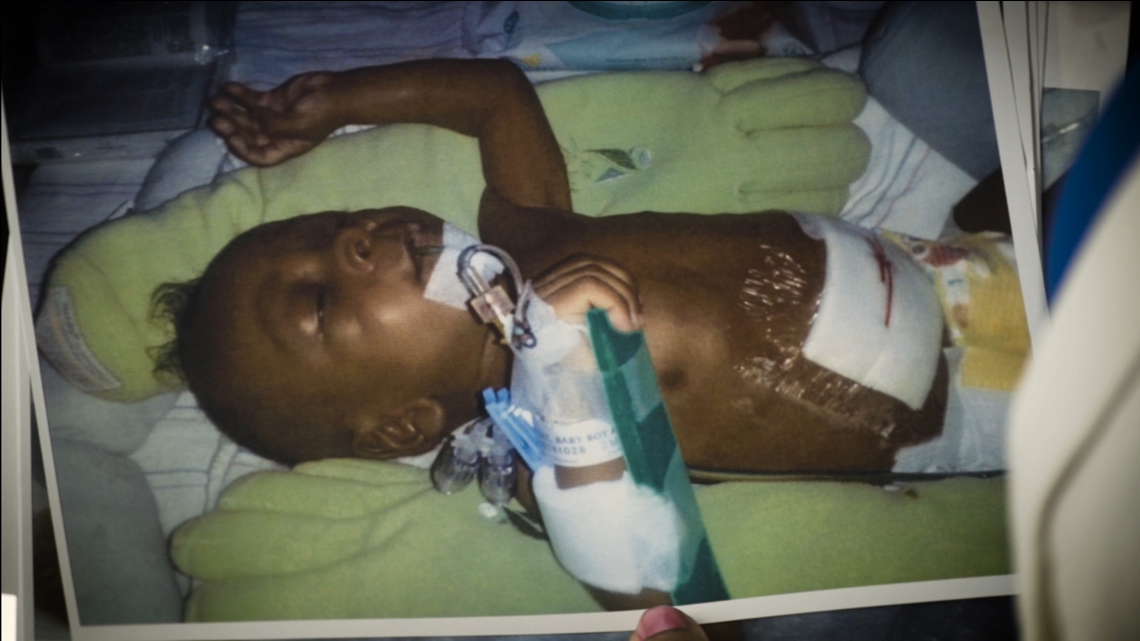
"I started going through trying to do my own research, figure out what it was, wondering was it something I did? What could I have done differently," she remembered.
While Jonas was in surgery, she learned about the role breast milk could play in preventing NEC. This was a day after doctors had begun supplementing Jonas' milk with formula.
"I knew from the beginning I wanted to breastfeed, but when they told me we're going to have to supplement, I didn't think twice about it," she said. "I assumed everything would be safe.”
In March, an Illinois state court jury found formula manufacturer Mead Johnson liable for not adequately warning of the risks of NEC associated with its cow’s milk-based formula. The jury awarded the plaintiffs $60 million, which was $30 million more than they were even seeking.
A spokesperson for Mead Johnson said the company denies the allegations, saying in a statement: "We continue to believe that the allegations from the plaintiff’s lawyers in this case were not supported by the science or experts in the medical community. We are considering all of our options, including appeal."
The landmark case was the first NEC failure-to-warn lawsuit to go to trial and set a national precedent for hundreds of other similar pending lawsuits, including several in Georgia.
Racial disparity behind the disease
For Seabrooks, it's been difficult to process both the formula allegations and the research that Black infants are most at risk. Jonas survived the disease, but only after losing most of his intestines in the surgery.
"Every day I'm looking at my boys, and ten years later, one's 50 pounds, one's 140 pounds," she said. "As a mother, I always question what could have we done different? And the fear of the unknown is always lurking around the corner."

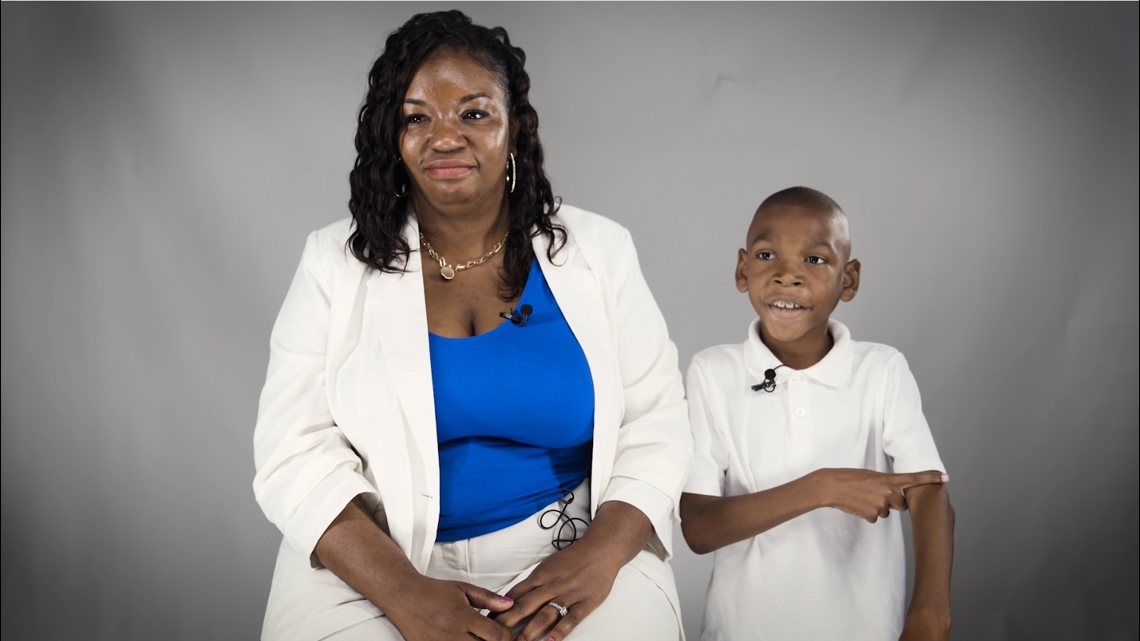
Dr. Wolfe pointed out that the racial disparity in cases may be influenced by lack of access to breast milk, in addition to the fact that Black babies are more likely to be born prematurely in general.
"We need to understand what factors may have predisposed them to deliver a baby prematurely, and then additionally, what other factors are maybe, perhaps, preventing them from providing breastmilk," she said.
Dr. Jocelyn Slaughter is an OBGYN who founded The Healthy Woman, which has practice locations in Snellville and Lawrenceville. She said she wasn't surprised by the racial disparity identified by Dr. Wolfe's research.
“Black people in general, we're always the ones that get the worst outcomes," Dr. Slaughter said. "Historically, we have had our children taken from us; we've been used as producers of slaves. And because of that, our women have been not cared for as much.”
She noted that lower rates of insured patients, medical mistrust, pressure to work until birth, cultural attitudes toward breastfeeding and gaps in awareness could all be contributing factors.
"NEC is something that most women and parents and laypeople have no clue what it is," she said. "I think sometimes historically it’s still taboo about Black women still breastfeeding. We were the ones who had to breastfeed white slave masters' children.”

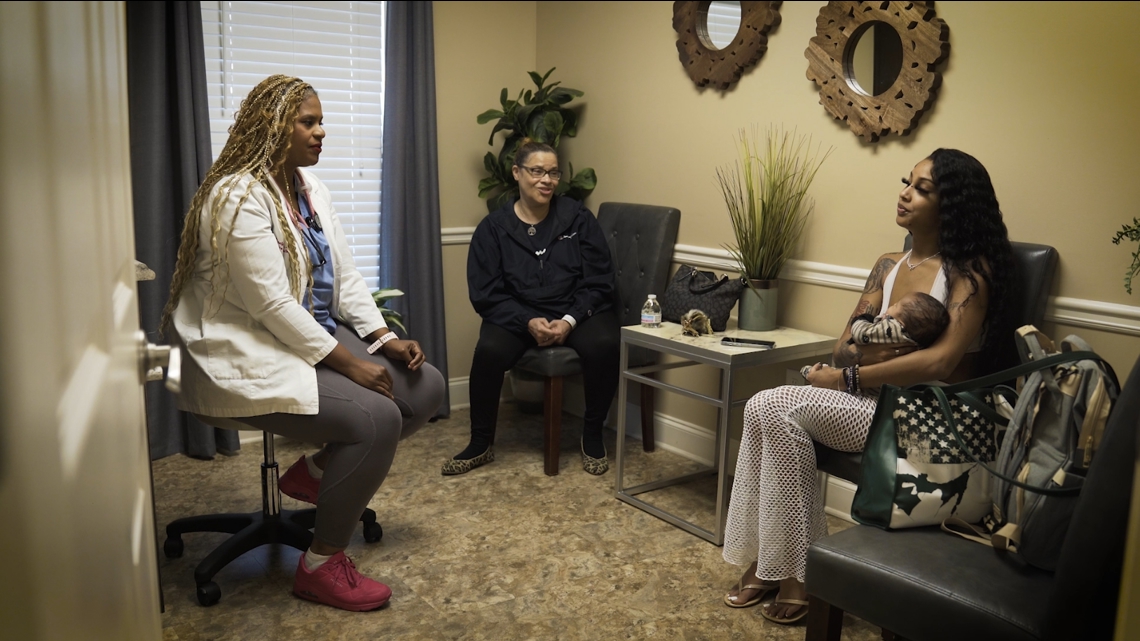
A need for milk donors
While there is still no definitive answer about what causes NEC, Dr. Wolf said there is a good amount of research surrounding what may prevent it.
"We know that providing breast milk or human milk to babies is one of the most important things we can do to prevent NEC," she said.
However, Dr. Slaughter pointed out that the need for breast milk donors is widespread.
"If you have extra breast milk, a great thing to do is to donate because it can help babies that are in the NICU and help reduce the need for formula," she said. "Motherhood is a journey that is like no other, and it still needs to be very protected."
Piedmont Healthcare recently started using human milk only in its NICU through its donor milk program. Since then, it has reported a 77% decline in NEC cases.
Atrium Health Floyd Medical Center's NICU also participates in a donor breast milk program, receiving its donations from WakeMed in North Carolina.
Because there is not currently a breast milk bank in the entire state of Georgia, mother's health advocates said Georgia hospitals have to rely on donor milk from other states like Alabama, Texas, North Carolina and Colorado.
A spokesperson with Mother's Milk Bank of Colorado confirmed they ship some human milk to Georgia hospitals since Georgia doesn't have its own milk bank.
A group of advocates has formed a nonprofit called MedMilk, with plans to fund and build Georgia's first milk bank facility.
“Those breast banks just aren't there," Seabrooks said. "I honestly believe because I did have some breast milk that I was able to give Jonas is the reason why he's still with us today.”
For Jonas, there's still a long road ahead for the 10-year-old. His struggle is clearly shown when he stands beside his twin, Josiah.
But he's still standing tall, nonetheless.


“I tell him you have to remember you're half the size of your brother, okay? But you've got a big heart, and god has you here for a reason," Seabrooks said. "And that reason is to give hope to other mothers. To give hope to other children.”
Resources
For those wanting to learn more about donating or receiving donor breast milk, Helping Mamas, a baby supply bank nonprofit based in Atlanta, offered the following resources:
Piedmont Donor Milk Program
- This program allows breastfeeding mothers to help premature babies by donating their excess breast milk. Milk donated to the program is formulated into human milk nutritional products to ensure babies have the nutrition they need, according to the website. The best milk is sent to Prolacta Bioscience, where it is tested, pasteurized and made into a 100% human milk product. For more information, click here.
Breastfeed Atlanta
- According to its website, it is the only milk depot in Atlanta for the Mothers' Milk Bank of Alabama. It collects donor milk that will be distributed in the community by the Mothers' Milk Bank of Alabama and the Human Milk Banking Association of North America. Interested donors should contact Mothers' Milk Bank of Alabama to learn more about the process of becoming an improved donor. For more information about Breastfeed Atlanta, click here.
Texas Mothers Milk Bank: helping Georgia
- This nonprofit organization located in Texas has a breastfeeding center in Georgia located at 107 Colony Park Dr., Unit 700 in Cumming. It was founded in 2004 to provide pasteurized donor human milk to fragile infants when their own mother's milk is not available. For more information, click here.
Atrium Health Floyd Donor Milk Program
- Atrium Health Floyd Medical Center's Neonatal Intensive Care Unit (NICU) participates in a donor break milk program. The milk is provided by the WakeMed Mother's Milk Bank and Lactation Center. According to its website, donor milk is ordered by a physician only after the mother gives consent. Anyone interested in becoming a milk donor and can supply a minimum of 200 ounces of milk within a six-month period can contact the WakeMed Mothers' Milk Bank at 919-350-8599. For more information, click here.
Have a tip for 11Alive Investigators? Text "investigate" to 404-885-7600 or email us at investigates@11alive.com. Your story and information are important to us, we'll make sure it gets to the right person on the team who may be in touch.


